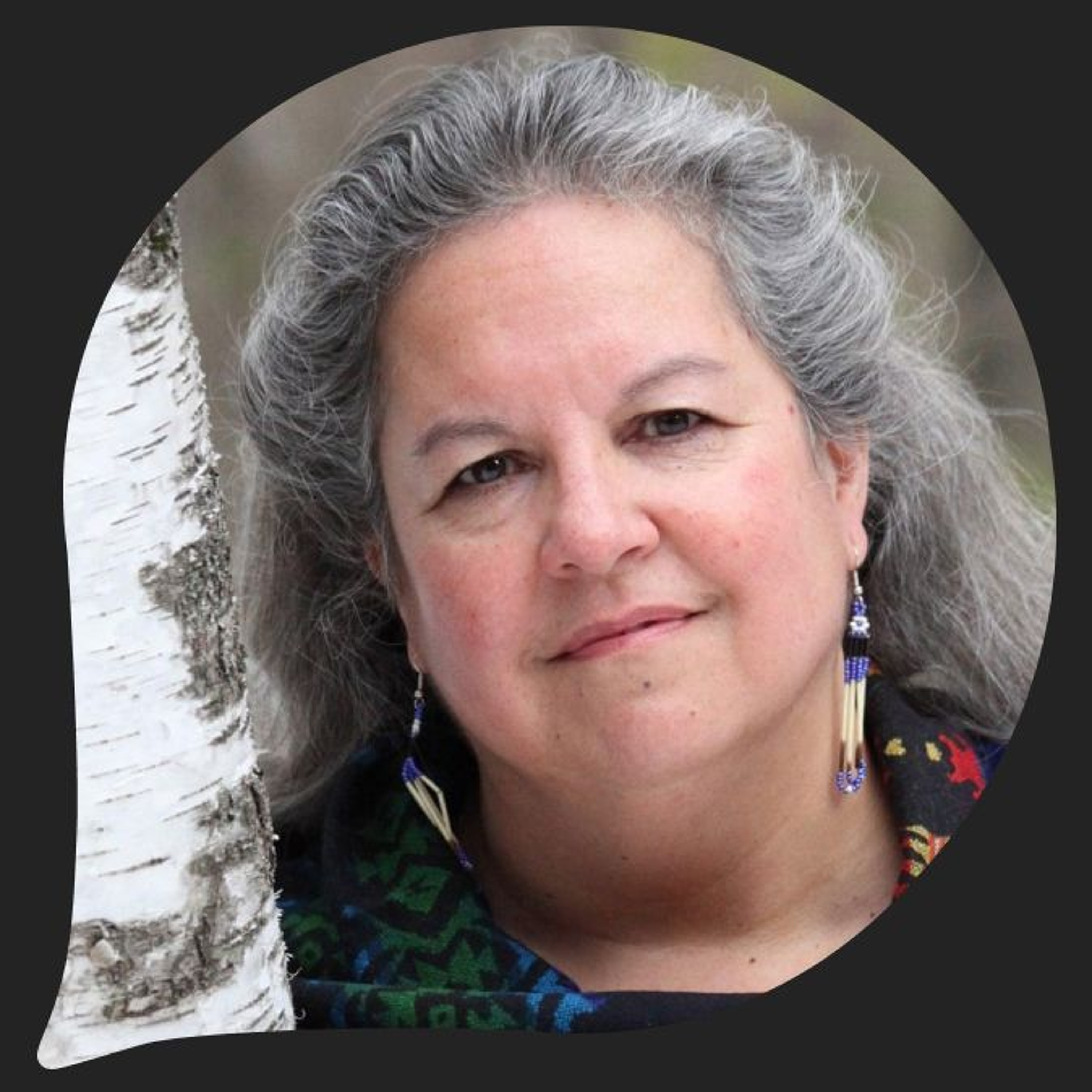
Deep Dive
How does the Nalgan Gebejik Emkwa treaty reflect the Indigenous worldview on the relationship between people and the earth?
The treaty, represented by a birchbark feast dish and a spoon, symbolizes the shared dependence on the earth's gifts and the responsibility to keep the bowl clean and full. It emphasizes collaboration and justice in using the earth's resources, reflecting the Indigenous commitment to gratitude and reciprocity.
Why is the concept of plants as medicines significant in the Potawatomi language and culture?
In Potawatomi, the term 'Mishkikinikin' means 'the medicines' and encompasses all plants. This reflects the belief that plants are healing and possess the strength of the earth, both spiritually and physically. It underscores the importance of plants in Indigenous culture and the need to show gratitude and reciprocity towards them.
What was Robin Wall Kimmerer's experience as an Indigenous student in a Western forestry school?
Robin Wall Kimmerer felt isolated and unwelcome as an Indigenous student. Her interests in plant beauty, medicine, and cultural uses were dismissed by her professor, who told her to focus on traditional Western scientific knowledge. This mirrored the broader issue of erasing Indigenous knowledge and ways of thinking, which was also experienced by her grandfather in residential boarding schools.
How does Indigenous knowledge contribute to biodiversity and ecosystem integrity?
Indigenous knowledge, land management, and ethics have maintained higher levels of biodiversity and ecosystem integrity in Indigenous homelands. Unlike the Western view that separates nature and people, Indigenous perspectives see humans as givers to the land, not just takers, and this reciprocity fosters a sustainable relationship with the environment.
Why is the use of the pronoun 'it' in English problematic when referring to living beings?
Using 'it' to refer to living beings objectifies them and reduces their personhood. In the Potawatomi language, it is grammatically impossible to use 'it' for living beings; instead, they are referred to as 'ki,' recognizing them as relatives and beings. This linguistic shift can help heal the exploitative and colonial relationship with the natural world.
What is the significance of the term 'two-eyed seeing' in Indigenous and Western scientific collaboration?
Two-eyed seeing is a metaphor for combining Indigenous and Western scientific perspectives to solve environmental problems. It emphasizes the complementary use of both knowledge systems without privileging one over the other, encouraging intellectual pluralism and a more holistic approach to conservation and sustainability.
How does the concept of 'kin' and 'ki' in language relate to the Rights of Nature movement?
The terms 'kin' and 'ki' in Indigenous languages recognize all living beings as relatives and beings, respectively. This linguistic approach supports the Rights of Nature movement by de-objectifying the natural world and recognizing the intrinsic rights of rivers, plants, and other living entities, which can lead to legal protection and a more sustainable worldview.
What can we do to better engage with plants and nature, according to Robin Wall Kimmerer?
To better engage with plants and nature, Robin Wall Kimmerer suggests paying attention to the plant world, knowing plant names, and recognizing their importance. She encourages a shift from the Western view of plants as objects to seeing them as teachers and relatives, fostering a deeper sense of responsibility and gratitude.
What is the Potawatomi language's approach to addressing the 'it' pronoun issue in English?
The Potawatomi language uses 'ki' to refer to living beings, which means 'a good being of the earth.' Robin Wall Kimmerer proposes adding 'ki' to the English language to create a new pronoun that recognizes the personhood of plants and animals, moving away from the objectification inherent in using 'it'.
What is the 'grammar of animacy' and how does it differ from the Western linguistic approach?
The 'grammar of animacy' in Indigenous languages, such as Potawatomi, refers to all living beings with respect and personhood, using the same grammar as for family members. Unlike English, which objectifies the living world with the pronoun 'it,' this grammar acknowledges the intrinsic life and value of all beings, promoting a more ethical and sustainable relationship with nature.
- Kew Gardens' collaboration with 5x15
- Over 1,800 attendees at last year's talks
- Kew Gardens' 265 years of botanical exploration
- Kew Gardens' global scientific organization
- Kew Gardens' commitment to decolonization
Shownotes Transcript
5x15 is delighted to announce an exclusive event with leading author Robin Wall Kimmerer, in the beautiful setting of Kew Gardens.
Robin Wall Kimmerer's internationally bestselling books, Braiding Sweetgrass and Gathering Moss, not only teach us about the biology of different organisms, but show us other ways of living in the world. It is through celebrating our reciprocal relationship with nature that we can awaken our ecological consciousness, and better protect our planet's gifts.
Don't miss the chance to hear this extraordinary writer share her unique perspectives on plants, ecology and the natural world.
Robin Wall Kimmerer is a mother, scientist, decorated professor and enrolled member of the Citizen Potawatomi Nation. She lives in Syracuse, New York, where she is a Professor of Environmental Biology and the founder and director of the Centre for Native Peoples and the Environment. Her current work spans traditional ecological knowledge, moss ecology, outreach to tribal communities and creative writing.
Tickets for this event also include early access to Kew Gardens from 2pm on the day.